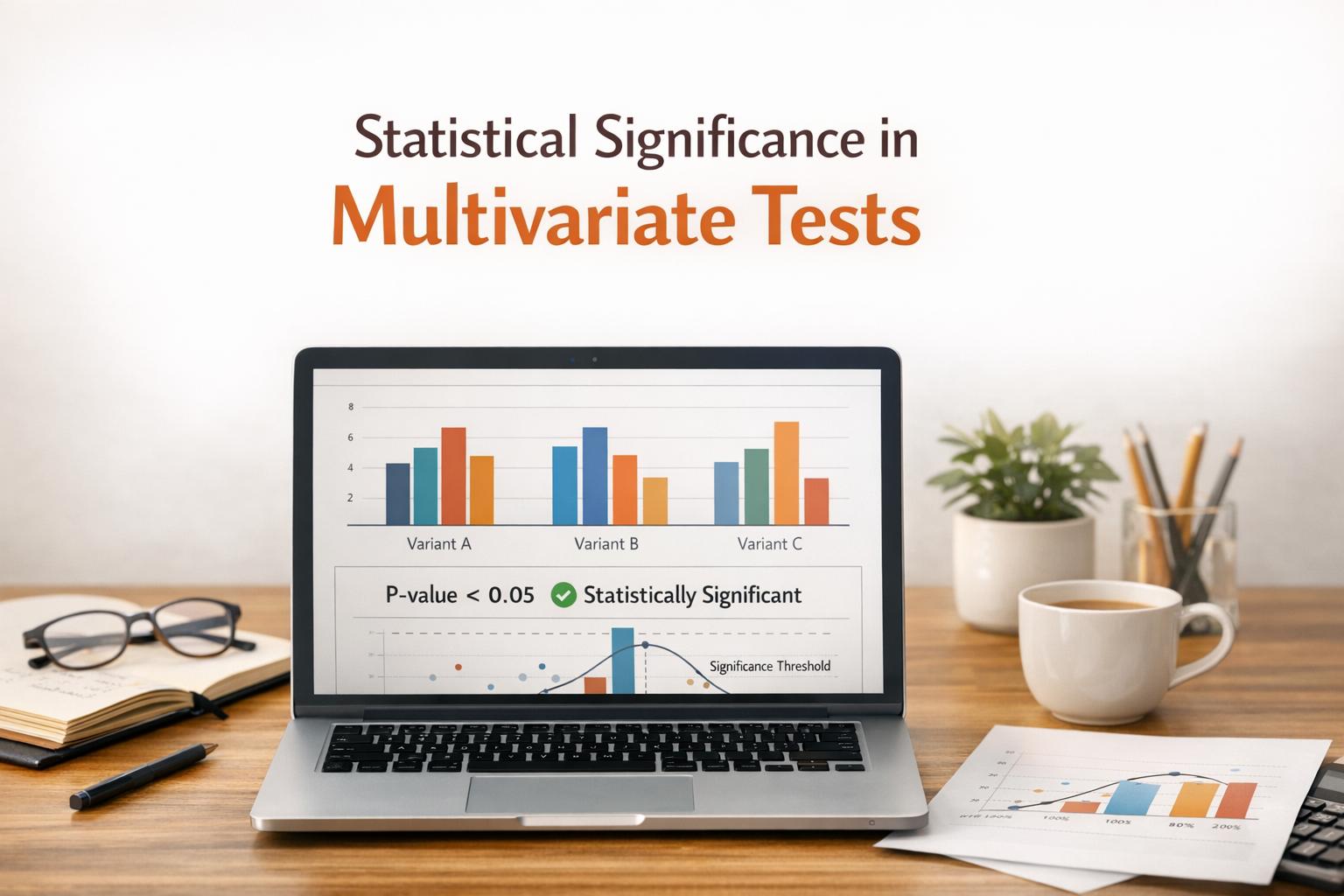

Why Every Business Needs a Website Analyzer Tool

Why Every Business Needs a Website Analyzer Tool
 13-05-2025 (Last modified: 03-10-2025)
13-05-2025 (Last modified: 03-10-2025)
Launching a website may be exciting but it is only half the job… the other half is making sure it actually performs. A beautiful site that loads slowly, breaks on mobile, or buries its SEO signals won’t bring in leads or sales. That’s where a website analyzer tool comes in.
As we head into 2026 (yikes!), and Google’s doubling down on Core Web Vitals, AI-driven search updates, and mobile-first indexing, analyzing your site regularly is no longer optional. It’s essential.
With the right website analyzer tool, you can:
-
Spot technical SEO issues that keep you off page one.
-
Fix page speed and Core Web Vitals that affect both users and rankings.
-
See how your site behaves across devices and networks.
-
Test and validate improvements with tools like PageTest.AI.
Think of it as a health check-up for your website — one that helps you turn traffic into real business results.
1. You Can’t Fix What You Can’t See
Most business websites have issues that are invisible without the right tools:
-
Your site might be slow, but only for mobile users on certain networks.
-
Your product pages might be missing meta descriptions, hurting your SEO.
-
Customers might be dropping off on the checkout page due to layout issues.
A website analyzer tool gives you clarity. It’s like a health check for your site, helping you spot the symptoms before they become major problems.

2. What Does a Website Analyzer Tool Actually Do?
These tools scan your site and deliver reports on key areas like:
-
Page speed and load time
-
Search engine optimization (SEO)
-
Mobile responsiveness
-
Core Web Vitals and performance scores
-
Usability and UX blockers
-
Broken links, redirects, and crawl errors
The best ones not only flag issues but also offer clear suggestions (and sometimes automated fixes) to improve performance.
“Improving Core Web Vitals can reduce bounce rates by up to 24%.” Google (2024 update)
3. Real Business Problems These Tools Help Solve
Problem #1: Your Site Looks Great But Loads Slowly
Speed is a ranking factor, but more importantly, slow sites frustrate users. A website analyzer tool like Google PageSpeed Insights or GTmetrix breaks down what’s slowing your site down and how to fix it.
Problem #2: You’re Not Ranking, Even with Good Content
You might be missing basic SEO elements; title tags, structured data, image alt text. A tool like Ahrefs Webmaster Tools or SEOptimer can audit your SEO setup and help you optimise for visibility.
“Only 0.21% of pages get traffic from over 1,000 keywords, showing how vital technical SEO and analysis are for visibility.” Backlinko
Problem #3: You’re Losing Customers on Mobile
A mobile-friendly design isn’t optional. A good website analyzer tool highlights usability issues on different screen sizes and devices so you don’t lose valuable traffic from mobile users.
Problem #4: You Have No Idea What Changes Actually Work
This is where PageTest.AI shines. More than just analysing issues, it lets you test variations of your headlines, layout, and CTAs to see which ones boost engagement and conversions.
4. Popular Website Analyzer Tools Compared
Let’s take a quick look at some top tools and how they compare on core features.
| Tool | Focus Area | Best For | Free Plan |
|---|---|---|---|
| PageTest.AI | UX & conversion testing | Marketers & growth teams | Yes |
| Google PageSpeed Insights | Speed & Core Web Vitals | Developers & tech teams | Yes |
| Ahrefs Webmaster Tools | Technical SEO | SEO professionals | Yes |
| SEOptimer | General audit | Beginners needing quick feedback | Yes |
| GTmetrix | Load performance | Visual performance insights | Yes |
5. How a Website Analyzer Tool Drives Results
Here’s how businesses benefit from consistently using these tools:
1. Improved SEO Rankings
Fixing metadata, improving page speed, and resolving crawl errors helps your content get found more easily.
2. Better User Experience
Cleaner layouts, mobile-friendly interfaces, and faster load times make people stay longer… and engage more.
3. Increased Conversions
By testing changes and refining your funnel, you turn more visitors into leads or customers.
4. Lower Bounce Rates
When your site works well across all devices and loads quickly, people don’t leave out of frustration.
6. Our Tip: Don’t Just Analyse… Test!
Analysis is only the first step. If you want to see measurable improvement, you need to test variations and see what actually moves the needle.
That’s where PageTest.AI really stands out. It combines the benefits of a traditional website analyzer tool with the ability to:
-
Run A/B tests on copy, layouts, CTAs
-
See which variations improve bounce rate or time on page
-
Get AI-powered test ideas tailored to your site
Bonus: There’s a free plan, and it integrates with platforms like Shopify and WordPress.
“Websites that are continuously optimized generate 126% more leads than those left untouched.” Hubspot

7. Key Features to Look For in a Website Analyzer Tool
When choosing a tool, make sure it covers:
-
Comprehensive SEO audit (metadata, links, keyword use)
-
Page speed and Core Web Vitals tracking
-
Mobile performance diagnostics
-
User behaviour analysis or testing (like PageTest.AI)
-
Actionable insights – not just a list of problems
The best tool is the one you’ll actually use regularly – so go for clear interfaces, smart suggestions, and a balance of tech + usability.
Final Thoughts
If your website is more of a mystery than a money-maker, it’s time to bring in a website analyzer tool.
From technical SEO audits to speed fixes and user experience testing, these tools help you move from guessing to growing. They shine a light on the weak spots in your website and give you the insights to turn things around.
And if you want to take it a step further and test your changes, not just analyse them, start with PageTest.AI. It’s a powerful way to validate what works, improve engagement, and convert more of your existing traffic.
Because the best-performing websites aren’t just pretty; they’re optimised, tested, and always improving.
FAQs for Website Analyzer Tools
1. What is a website analyzer tool?
It’s software that scans your site for performance, SEO, and usability issues, providing a report with fixes and insights.
2. How often should I use a website analyzer?
For most businesses, monthly checks are ideal. High-traffic or e-commerce sites benefit from weekly or even daily analysis.
3. Do analyzer tools improve SEO directly?
Not directly. They show you what’s wrong — like missing metadata or crawl errors — so you can fix them and improve SEO.
4. Are paid tools worth it over free ones?
Free tools like Google PageSpeed Insights are great starting points. Paid tools often add competitor tracking, advanced reports, and integrations.
5. Can a website analyzer boost conversions?
Yes. By improving speed, fixing UX blockers, and testing CTAs or layouts (with PageTest.AI), you can directly increase conversions.
6. What should I look for in 2026?
Choose a tool that includes Core Web Vitals, mobile diagnostics, SEO auditing, and ideally testing features — because analysis without testing leaves improvements unproven.
say hello to easy Content Testing
try PageTest.AI tool for free
Start making the most of your websites traffic and optimize your content and CTAs.
Related Posts

 27-01-2026
27-01-2026
 Ian Naylor
Ian Naylor
Ethical Data Collection for CRO
Privacy-first CRO guide: get explicit consent, minimize and anonymize data, and comply with GDPR/CCPA while improving conversions.

 26-01-2026
26-01-2026
 Ian Naylor
Ian Naylor
Category Page Layouts That Boost SEO
Optimize category pages with clear hierarchies, concise above-fold copy, mobile-first layouts, schema, image optimization and pagination to increase traffic.

 24-01-2026
24-01-2026
 Ian Naylor
Ian Naylor
Statistical Significance in Multivariate Tests
How to get reliable results from multivariate tests using fractional designs, statistical corrections, variance reduction, and AI automation.
